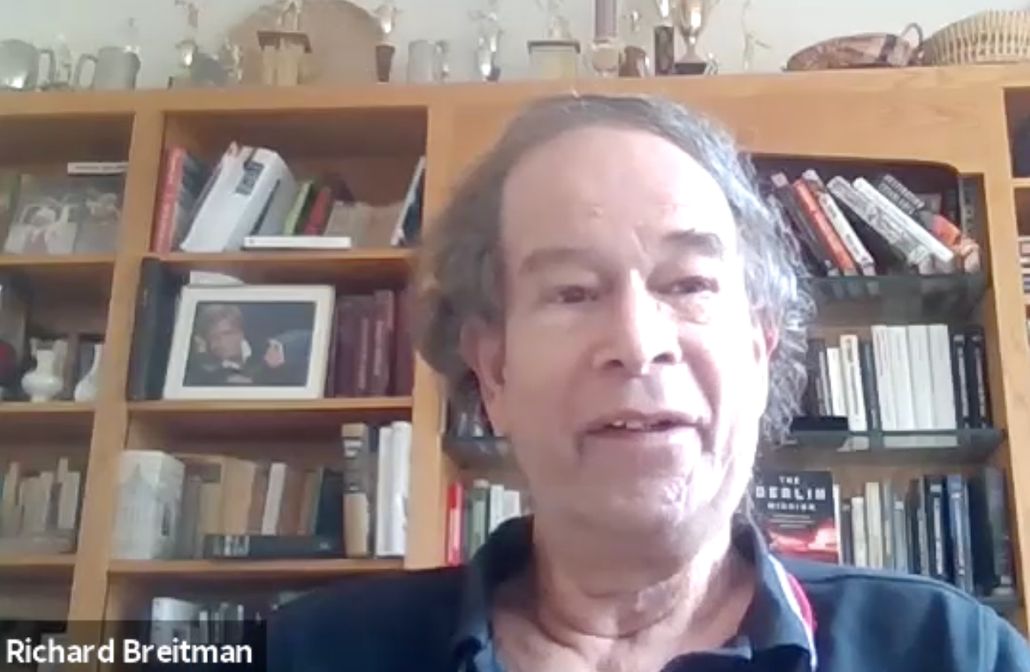An Impactful and Memorable Conversation –Class Colloquium #11
Class Colloqium 11, held July 14, 2021, featured Classmate Richard Breitman in a thought-provoking discussion of ‘Refugee and Immigrant Crises’, an area of his broad expertise. See video below.
Professor Emeritus, after a 40-year career at American University, Richard commented based upon his knowledge of early 20th century German History, extensive Holocaust documentation and study, and declassification of military intelligence which literally opened the public record to critical British wartime message decoding. He has personally documented what the British and American governments knew, and when!
The goal of this Zoom session was to identify characteristics, behaviors, and trends which would create a lens for viewing recent refugee and immigration policy in the US. That goal was met, but the session almost unexpectedly exposed much more.
The format for this gathering was more conversational than didactic. Professor Breitman, a brilliant and astute historian, began with a concise summary of his experience and expertise, tracing basic changes in US immigration and refugee policy since the 20’s. He highlighted driving forces, then drew comparisons to restrictive measures used in the past and compared them to those used by the Trump Administration.
Throughout he engaged in a lively 3-way Q&A with question master, (John Oleary) and host ( Art Segal). This format allowed both learned and personal responses from Professor Breitman, who admitted how frankly emotionally difficult this work had been for him, despite the demand for academic neutrality required to render his work credible.
The conversational, intimate nature of the session made it easier to ask and have difficult questions answered. Amongst those were exploration of how a minority constituency ( the Nazis) actually ascended to German leadership, then how they subverted foundational norms, morals, and the institutions of German life, politics, and morality, thereby converting countless Germans to the Nazi cause.
The discussion then expanded to include the where and how of behaviors that were authoritarian, genocidal, and world-dominating, at the cost of all contemporary civilization.
The effect upon the audience was palpable. Parallels to recent American geopolitical history were made but were indeed seemingly self-evident.
The conversational approach was a very good fit for the somewhat smaller audience size, and the effect was certainly much larger than could have been anticipated !

